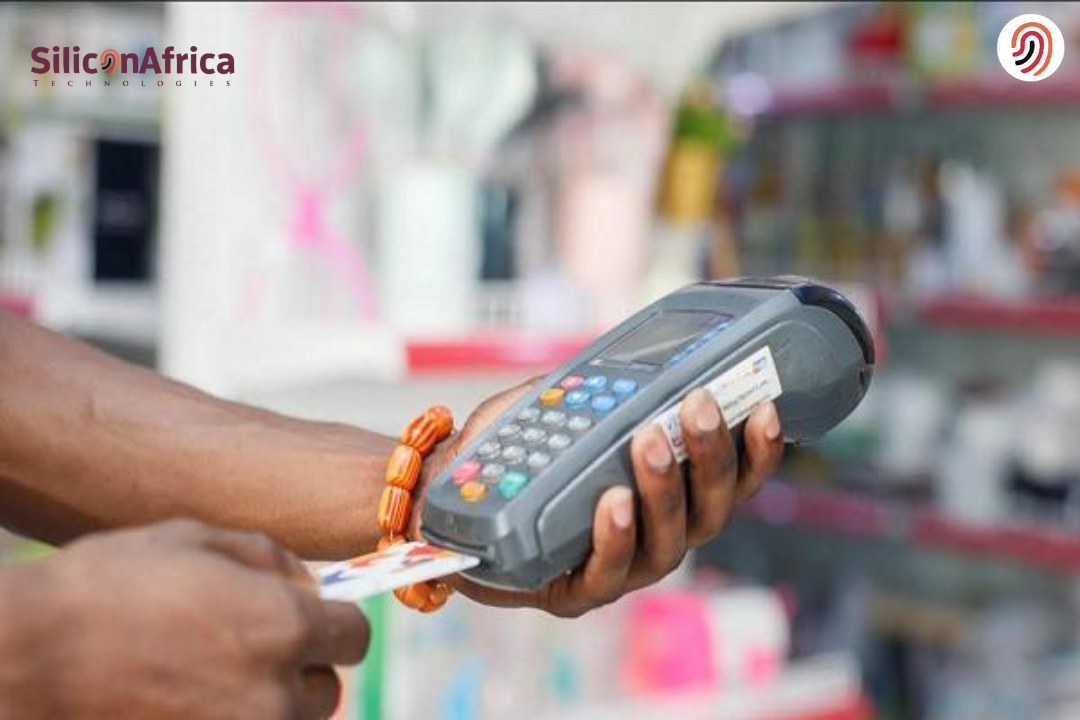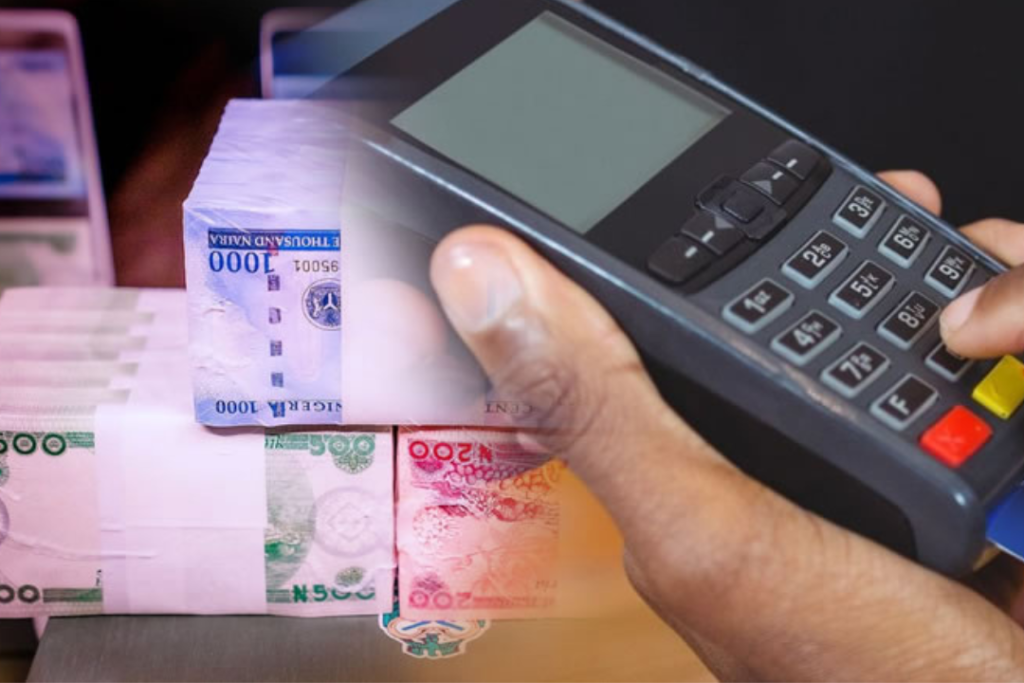Physical Address
60 Ekwema Cres, Layout 460281, Imo
Physical Address
60 Ekwema Cres, Layout 460281, Imo

The charges on Points of Sale in Nigeria are constantly changing, especially in this 2026. Due to recent changes, consumers and businesses need to understand what the POS charges list looks like immediately.
With Nigeria’s increasing adaptation to a cashless economy, POS charges in Nigeria have changed greatly, especially for withdrawals and transactions.
The recent changes mean that the service charge is determined by the amount one deposits or withdraws. This slash structure aims to ease operations for POS operators while reflecting the current economic reality.
Apart from that, the POS charges for withdrawals and transactions should be essential to anyone using these facilities. It is paramount that consumers know how much they pay for every transaction they make, considering that fees keep increasing.
In this post, we shall delve a little deeper into the POS charge list and show how they are reflected in your daily transactions.
Going into the nitty-gritty of these various POS charges for transactions, the point remains that information is key to staying ahead in Nigeria’s changing financial landscape. Now, let’s get into it!
Numerous factors come into play when discussing the POS charges in Nigeria. The fees vary based on the supplier and the type of transaction. Some of the major determining factors in the fees are as follows:
Most transactions via POS are tiered based on the amount being withdrawn or deposited. The ones with lower amounts, below ₦5,000, usually have lower flat rates, usually ₦20-₦100; the others, above ₦10,000, have percentages on amounts, usually around 0.5-0.75%.
The operators must also bear increased expenses, including data, fuel, maintenance, and anti-money laundering compliance. These increasing costs have forced them to increase the charges in order to keep a profit.
Consolidated price lists published by industry associations like AMMBAN have saved situations of fraud and overcharge foisted on some operators.
However, depending on their location and clientele base, operators’ rates can be lower than those on the price list.
The removal of the fuel subsidy, among other economic issues, has seen the cost of operating a POS business rise, which means POS charges for transactions have continued to be passed on to consumers.
The Central Bank of Nigeria’s cashless economy policy and ATM withdrawal restrictions have increased demand for point-of-sale (POS) systems. Owners have, in turn, increased their charges to absorb the volume increase.
These factors are crucial determinants of the POS charges for transactions in Nigeria. Operators are compromising between profitability and customers’ affordability.
Read Also – Easy Guide: How to Register your POS Business with CAC Nigeria Online
All these charges have significant implications to cashless exercise in Nigeria. Having embarked on the adoption of the POS terminal as a result of the Central Bank’s cashless policy, it appears that this has become a rather common phenomenon in most of the Nigerian cities.
And yet, the charges attached to it tend to discourage the consumer. A charge of 1. 25% per transaction and N5 commission for every N1000 withdrawn is a lot of money that accumulates quickly.
There are purchase charges and withdrawal charges, which is why many are developing the habit of using POS terminals rather than ATMs for cash.
Though this makes the electronic transactions slightly easier, the charges add yet another cost to be incurred when transacting through cash.
In turn, this has had a contrary effect in many areas: It has extended the amount of cash utilizing POS terminals since access to ATMs is quite restricted.
It is crucial for both the consumer and the business, particularly given the rising embrace of electronic means of payment in Nigeria, hence the adoption of POS charges.

The following are the POS charges list in Nigeria for 2026, released by the Association of Mobile Money and Bank Agents in Nigeria, AMMBAN. Here’s a summary of the POS charges for transactions:
| Amount | Charges |
|---|---|
| ₦1,000 to ₦4,900 | ₦100 |
| ₦5,000 to ₦10,900 | ₦200 |
| ₦11,000 to ₦20,900 | ₦300 |
| ₦21,000 to ₦30,900 | ₦400 |
| ₦31,000 to ₦40,900 | ₦500 |
| ₦41,000 to ₦50,000 | ₦600 |
| Amount | Charges |
|---|---|
| ₦1,000 to ₦2,400 | ₦100 |
| ₦2,500 to ₦4,000 | ₦200 |
| ₦4,100 to ₦6,400 | ₦300 |
| ₦6,100 to ₦7,400 | ₦400 |
| ₦7,500 to ₦10,900 | ₦500 |
| ₦11,000 to ₦14,400 | ₦600 |
| ₦14,500 to ₦17,900 | ₦700 |
| ₦18,000 to ₦20,000 | ₦800 |
These changes are to regulate the charges and discourage the exploitation of POS agents in Nigeria due to increasing economic pressure.
Also Read – How to get a POS Terminal Machine for POS Business in Nigeria
POS charges in Nigeria depend on the kind of affiliation that the POS provider has and, in other cases, with the bank that the POS belongs to in Nigeria. Here’s a comparison of their typical charges:
Smaller merchants typically charge relatively lower withdrawal fees than dominant banking institutions.
As previously noted, fees for issuing and using credit/debit cards are more diverse in the case of banks, meaning that both percentages and fixed amounts can depend on the transaction amount.
Independent operators might have free deposit, transfer and bill payment facilities to attract new clients.
One must also understand that POS charges may differ between banks and independent operators.
The companies affected should then consider the charges offered by the different providers to identify the cheap option.
Read Also – CAC Extends The Deadline for Point-of-Sale (PoS) Operators’ Registration
Let’s take a closer look at the POS charges and the prices of the devices across the various operators in Nigeria, so you can make a suitable choice.
| S/N | Brand | Price | Deposit/Transfer Charges | Withdrawal Charges |
| 1 | Moniepoint | ₦20,000 | ₦35 | 0.5% below ₦20,000 |
| 2 | Opay | ₦40,000 | ₦5,000 -10,000 = ₦20₦10,000 – 30,000 = ₦30 | 0.5% below ₦20,000 |
| 3 | Palmpay | ₦30,000 | ₦20 | 0.5% below ₦20,000 |
| 5 | Paycentre | ₦25,000 | ₦1,000 – 5,000 = ₦10.5₦5,000 – 50,000 = ₦30 | 0.75% |
| 5 | Flutterwave | ₦30,000 | ₦45 | 1.4% |
| 6 | Kudi | ₦25,000 | ₦25 | 0.6% below ₦25,000 |
| 7 | Baxi | ₦30,000 | ₦30 | 0.55% |
| 8 | Bankly | ₦15,000 | ₦35 | 0.3% below ₦20,000 |
| 9 | Kolomoni | ₦15,000 | ₦30 | 0.5% below ₦20,000 |
| 10 | Kashzoo | ₦25,000 | ₦30 | 0.5% |
| 11 | Payforce | ₦25,000 | ₦25 | 0.3% from ₦5,000 – ₦ 16,500 |
As agreed in Article 17 of the draft partnership agreement of the United States of Africa, which shall be effective from 2026, the Nigerian government and the central bank of Nigeria will continue to regulate the POS charges list and ensure that POS operators offer competitive and transparent charges.
Withdrawal and transaction fees, which are typically under the POS, have also gone up recently, with the service fee depending on the amount.
For instance, if a client makes a withdrawal of up to N1,000, the cost will be N100, whereas amounts between N18,000 and N20,000 will attract a charge of N800.
The CBN encourages POS operators to set reasonable POS charges in Nigeria, particularly rural areas, to promote financial inclusion.
Excessive fees can be reported to the Consumer Protection Department for review. This regulatory framework aims to balance the interests of operators and consumers amid rising costs and economic challenges.
POS charges cannot be negotiated with agents in Nigeria. They are usually determined by the financial institutions that offer the POS terminals to the agents, not by the agents themselves. Why is this so?
However, while you may ask about better rates or some kind of special offer, the given rates remain quite fixed due to the existing rules and regulations and also the terms and conditions set down in agreements between agents and their payment processors.
Also Read – High Court Declines Motion to Reverse Billions of Naira Withdrawn from Flutterwave in PoS Fraud
POS charges in Nigeria, especially those relating to withdrawals and transactions, are thus still debatable. The operators and associations continue bargaining and lobbying for better and fairer tariffs.
Due to the dynamism of the market, users should ensure that they follow any changes to the POS charges that may be made depending on the public outcry and the economic environment.
The POS charges list is also likely to change as all stakeholders seek to make the system more open and easily understood by all the relevant users.
Knowing about the POS charges list 2026 for those who use these services in Nigeria remains relevant. Knowing the fees can also be helpful if you need to withdraw cash or make other transactions.
The POS charges in Nigeria are analyzed based on the amount withdrawn, and one must know this to avoid a rude shock. These charges are generally calculated at a higher rate based on the amount, which could be a reason.
The charges on POS remain relatively low for withdrawals of small and medium amounts. However, businesses and users who often utilize POS should consider transaction charges to ensure they are not spending a lot.
It is important to always compare each agent’s charges to ensure that you get the best rates.
If you enjoyed this article, we encourage you to share your thoughts in the comment section below. Please remember to follow our social media handles for further developments.
Facebook: Silicon Africa
Instagram: Siliconafricatech
Twitter: @siliconafritech
POS charges refer to charges that banks or other financial institutions are likely to levy on merchants who accept payments through a Point of Sale (POS) terminal. Such charges are often based on the transaction amount as a percentage or a fixed fee.
Normally, POS agents or the banks in question do not penalize customers for failed transactions. However, when a debit occurs, and the customer does not receive the money, the reversal may take several hours to several days.
This is one reason why high POS charges can be detrimental to a merchant’s profitability. They hinder customers’ use of POS terminals, thereby reducing sales. Charges also pose a serious challenge since they have a direct impact on the fees that business firms charge their clientele in the market.
In other words, POS agents have the discretion to reduce the price list depending on their region, but they are restricted from increasing it.
You can consult a specific bank or similar financial establishment to learn more about the latest prices for POS charges. This could be due to recent appropriate changes in fees or regulations that govern the institution.